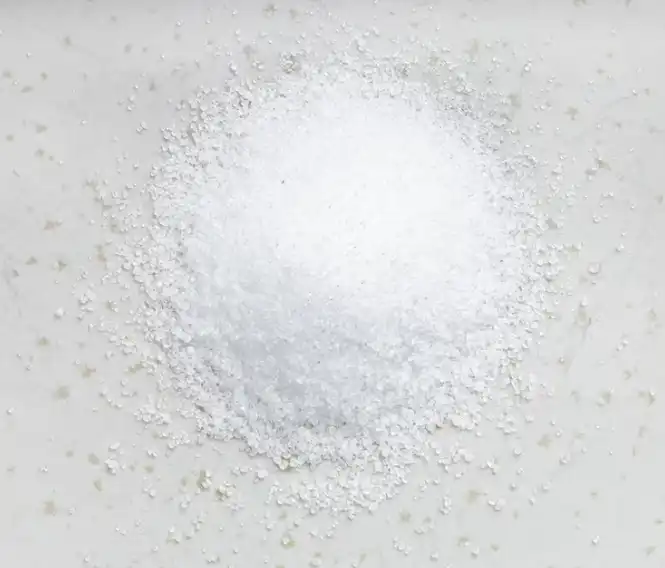IUPAC Name
Ammonium Hydrogen Carbonate
Cas Number
1066-33-7
HS Code
2836.99.90
Formula
NH4HCO3
Appearance
White Crystalline Powder
Common Names
Ammonium Hydrogen Carbonate
Packaging
25 Kg Bag
Ammonium bicarbonate is a white crystalline powder that is soluble in water. It has a mild ammonia-like odor. Ammonium bicarbonate is formed through the reaction of ammonium cations (NH4+) and bicarbonate anions (HCO3-). It is a weak base that decomposes when heated, releasing ammonia gas, carbon dioxide gas, and water vapor. This decomposition makes ammonium bicarbonate useful as a leavening agent, as the gas produced during decomposition causes baked goods to rise.
Ammonium bicarbonate is typically produced through a reaction between ammonia and carbon dioxide. The manufacturing process can be broken down into several steps:
Gaseous ammonia (NH3) and carbon dioxide (CO2) are introduced into a reactor vessel. The ammonia and carbon dioxide react to form ammonium bicarbonate according to the following equation:
NH3 + CO2 + H2O → NH4HCO3
The ammonium bicarbonate that is formed in the reactor vessel is absorbed into a water solution. The resulting solution is then pumped to a crystallization tank where the ammonium bicarbonate is separated from the water by cooling the solution.
Purification: The ammonium bicarbonate crystals are further purified by washing and filtering. The final product is a white crystalline powder with a purity of around 99%.
Ammonium bicarbonate is a white crystalline powder that is soluble in water. It has a mild ammonia-like odor. Ammonium bicarbonate is formed through the reaction of ammonium cations (NH4+) and bicarbonate anions (HCO3-). It is a weak base that decomposes when heated, releasing ammonia gas, carbon dioxide gas, and water vapor. This decomposition makes ammonium bicarbonate useful as a leavening agent, as the gas produced during decomposition causes baked goods to rise.
Ammonium bicarbonate is typically produced through a reaction between ammonia and carbon dioxide. The manufacturing process can be broken down into several steps:
Gaseous ammonia (NH3) and carbon dioxide (CO2) are introduced into a reactor vessel. The ammonia and carbon dioxide react to form ammonium bicarbonate according to the following equation:
NH3 + CO2 + H2O → NH4HCO3
The ammonium bicarbonate that is formed in the reactor vessel is absorbed into a water solution. The resulting solution is then pumped to a crystallization tank where the ammonium bicarbonate is separated from the water by cooling the solution.
Purification: The ammonium bicarbonate crystals are further purified by washing and filtering. The final product is a white crystalline powder with a purity of around 99%.
